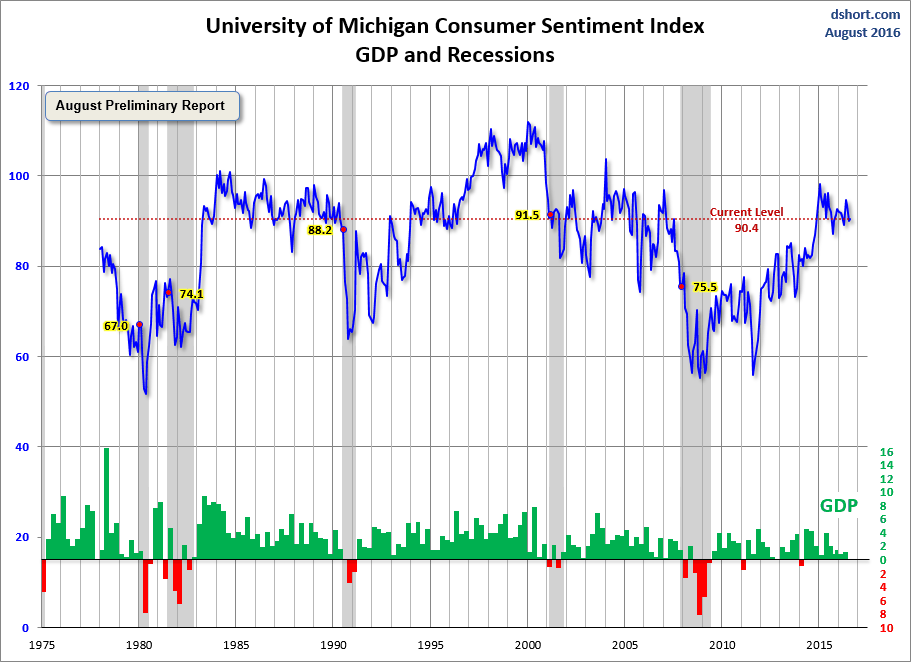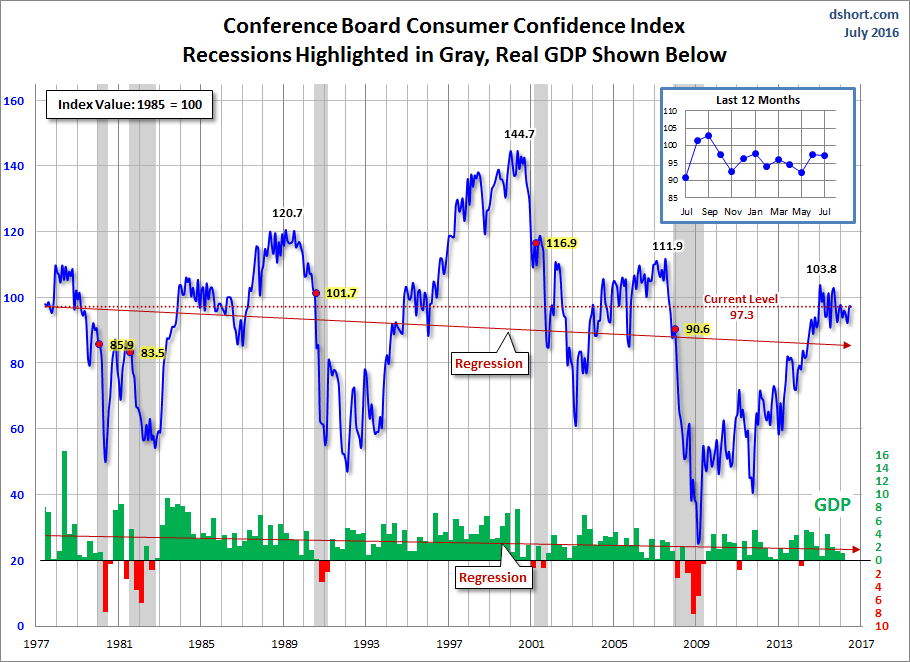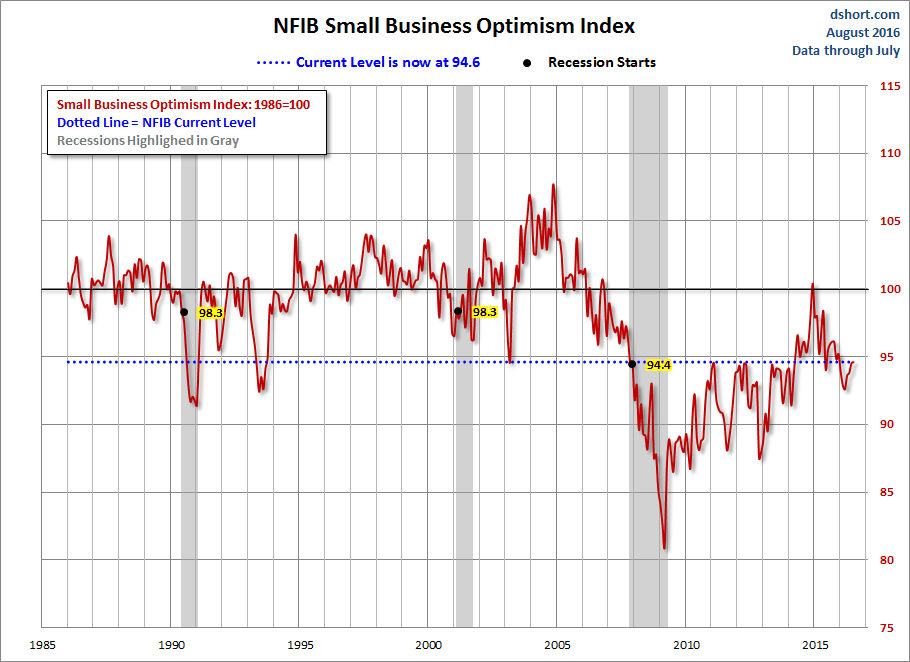by Doug Short, Advisor Perspectives/dshort.com
The University of Michigan Final Consumer Sentiment for October came in at 90.0, a decrease from the 92.1 Preliminary October reading. Investing.com had forecast 92.5 for the October Final.
Surveys of Consumers chief economist, Richard Curtin makes the following comments:
The entire October rebound from September was due to gains in confidence among lower income households, while confidence among households with incomes in the top third of the income distribution retreated a bit due to concerns about financial markets. Nonetheless, the overall impact from volatile stock prices has been quite small. Indeed, the average level of the Sentiment Index thus far in 2015 (93.1) is higher than any other year since 2004 (95.2). More importantly, future financial prospects were viewed more favorably by all households in October than anytime since 2007. In addition, the expected long term inflation rate dropped to the lowest level in over a quarter century. While these favorable trends will keep the pace of growth in consumer spending at 2.9% in 2016, consumers will continue to make increases in their buying plans contingent on the availability of price discounts and low interest rates. Indeed, it was consumers’ disappointment with available price discounts that was responsible for the small retrenchment in confidence in the last half of October.
See the chart below for a long-term perspective on this widely watched indicator. Recessions and real GDP are included to help us evaluate the correlation between the Michigan Consumer Sentiment Index and the broader economy.
To put today’s report into the larger historical context since its beginning in 1978, consumer sentiment is 5.5 percent above the average reading (arithmetic mean) and 7 percent above the geometric mean. The current index level is at the 55th percentile of the 454 monthly data points in this series.
The Michigan average since its inception is 85.3. During non-recessionary years the average is 87.5. The average during the five recessions is 69.3. So the latest sentiment number puts us 20.7 points above the average recession mindset and 2.5 points below the non-recession average.
Note that this indicator is somewhat volatile, with a 3.1 point absolute average monthly change. The latest data point was a 2.8 point change from the previous month. For a visual sense of the volatility, here is a chart with the monthly data and a three-month moving average.

For the sake of comparison here is a chart of the Conference Board’s Consumer Confidence Index (monthly update here). The Conference Board Index is the more volatile of the two, but the broad pattern and general trends have been remarkably similar to the Michigan Index.
And finally, the prevailing mood of the Michigan survey is also similar to the mood of small business owners, as captured by the NFIB Business Optimism Index (monthly update here).
The general trend in the Michigan Sentiment Index since the Financial Crisis lows has been one of slow improvement. But the survey findings since December have been relatively range bound with January remaining the interim peak.
Caveats on the Use of University of Michigan Consumer Sentiment
This survey is quantitatively derived from a fairly complex questionnaire (sample here) via a monthly telephone survey. According to Bloomberg:
This release is frequently released early. It can come out as early as 9:55am EST. The official release time is 10:00. Base year 1966=100. A survey of consumer attitudes concerning both the present situation as well as expectations regarding economic conditions conducted by the University of Michigan. For the preliminary release approximately three hundred consumers are surveyed while five hundred are interviewed for the final figure. The level of consumer sentiment is related to the strength of consumer spending. Please note that this report is released twice per month. The first is a preliminary figure while the second is the final (revised) figure.
This is a survey, a quantification of opinion rather than facts and data. The question – does sentiment lead or truly correlate to any economic activity? Since 1990, there seems to be a loose general correlation to real household income growth.
Related Posts:
Old Analysis Blog | New Analysis Blog |
| Consumer Confidence | Consumer Confidence |
include(“/home/aleta/public_html/files/ad_openx.htm”); ?>












